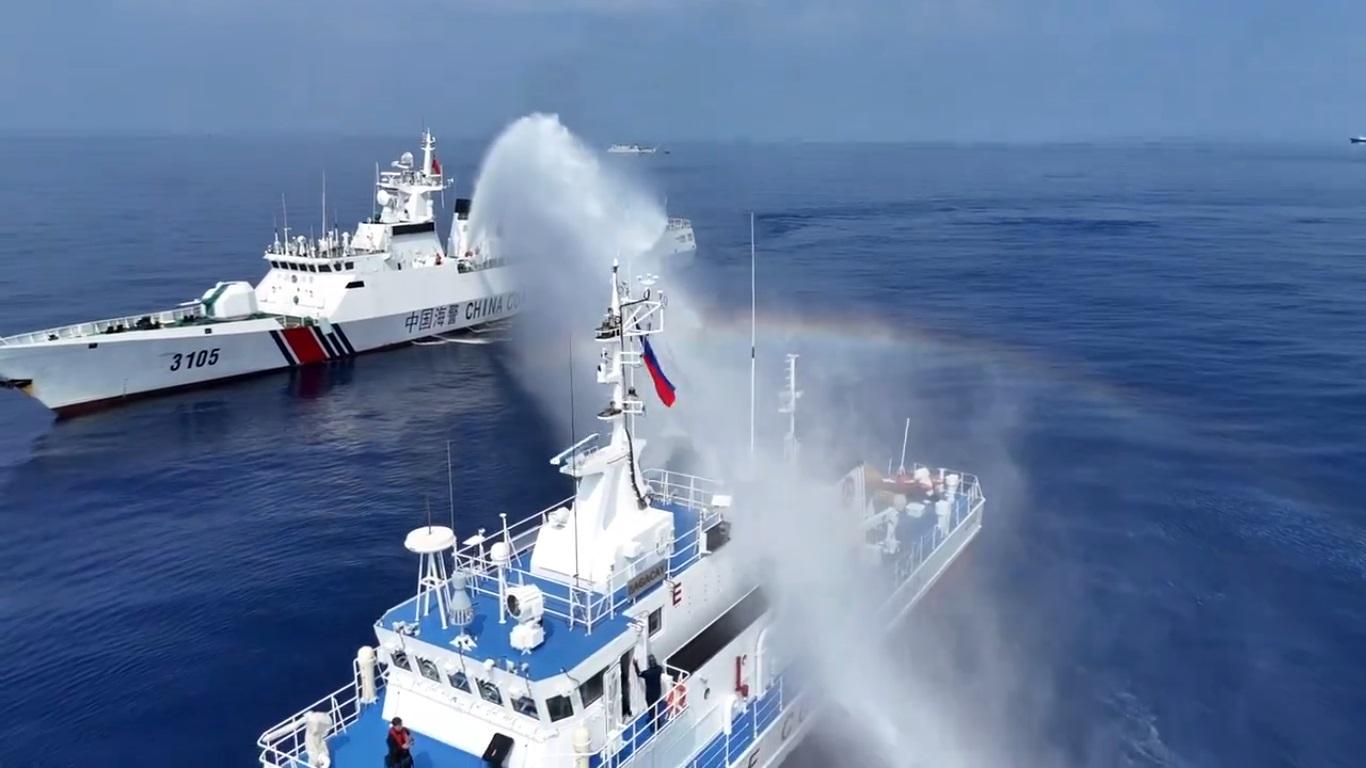PH should raise WPS issue in UN — maritime law expert

A maritime law expert on Sunday said the Philippines should bring the issue of Chinese harassment in the West Philippine Sea to the United Nations General Assembly and Security Council.
Jay Batongbacal, who serves as director of the University of the Philippines Institute for Maritime Affairs and Law of the Sea, said that many countries are still unaware of what is really happening in the region, thus raising such a concern to the UN will make other world leaders understand the situation of the Philippines.
“'Yung lumalakas na karahasan ng China, ‘yan dapat dalhin siguro 'yan sa UN, although alam natin na ibi-veto 'yan ng China, pero at least para maipahiwatig natin sa mundo kung ano talaga ang nangyayari rito,” he said.
(Perhaps we should bring the issue of China's growing aggression to the attention of the UN. Although we know China will veto it, at least we can tell the world what is really happening here.)
China is among the five permanent members of the UN Security Council, along with France, the Russian Federation, the United Kingdom and the United States. Meanwhile, there are 193 member-states at the UN General Assembly, which is the main policy-making body of the organization.
With this, Batongbacal said there is a high chance that China will veto the discussion against them in the Security Council, but raising this issue to both venues will still merit and get the attention of other countries, hopefully helping the Philippines gain more allies.
“Ang Tsina, mapipilitan syempre mag-wheeling and dealing ‘yan pero dahil doon, ang kapalit niyan ang tinatawag na reputational cost. Mahihirapan tuloy siya sa pakipag-deal sa ibang bansa dahil tatanungin siya, anong ginagawa niyo sa Pilipinas?” He said.
(China will be forced to wheel and deal. This will result in what is called reputational cost wherein it would be difficult for China in making deals with other countries because questioned will be raised regarding its actions against the Philippines.)
The Philippine government has sued China before the Permanent Court of Arbitration in The Hague in 2013. The Court ruled in favor of the Philippines in July 2016 when it junked China's nine-dash claim over the South China Sea.
China, however, refuses to recognize the ruling to this day.
During the Shangri-La Dialogue in Singapore, President Ferdinand "Bongbong" Marcos Jr. affirmed his administration’s commitment to protect the Philippines’ territorial rights amid the maritime dispute with China.
He also emphasized the importance of the Philippines’ territorial claims in the West Philippine Sea, saying, “We will never allow anyone to detach it from the totality of the maritime domain that renders our nation whole.”
The West Philippine Sea is the official designation by the Philippine government to the parts of the South China Sea that are included in the country's exclusive economic zone (EEZ).
With such a strong statement from the Philippine president, Batongbacal said that several countries have shown concern and support to the country.
“Nakikita natin na habang pinalalakas nila ang pambu-bully sa atin, dumadami ang kumakampi sa atin. Lalong nagiging kumplikado para sa kanila ang sitwasyon dahil pati ang ibang bansa ngayon ay pumapasok sa South China Sea at West Philippine Sea,” he added.
(We have been observing that as China intensifies their bullying, more nations will support the Philippines. The situation is becoming more complicated for China because other countries are now becoming involved in the South China Sea and the West Philippine Sea issues.)
Last year, then Senate President Juan Miguel Zubiri called on the Philippines to report China's repeated violations against the Hague ruling on the West Philippine Sea.
Zubiri said the Philippines should hand over documentation of the current situation in the area, as China refuses to abide by the decision of the international tribunal. —Giselle Ombay/RF GMA Integrated News




